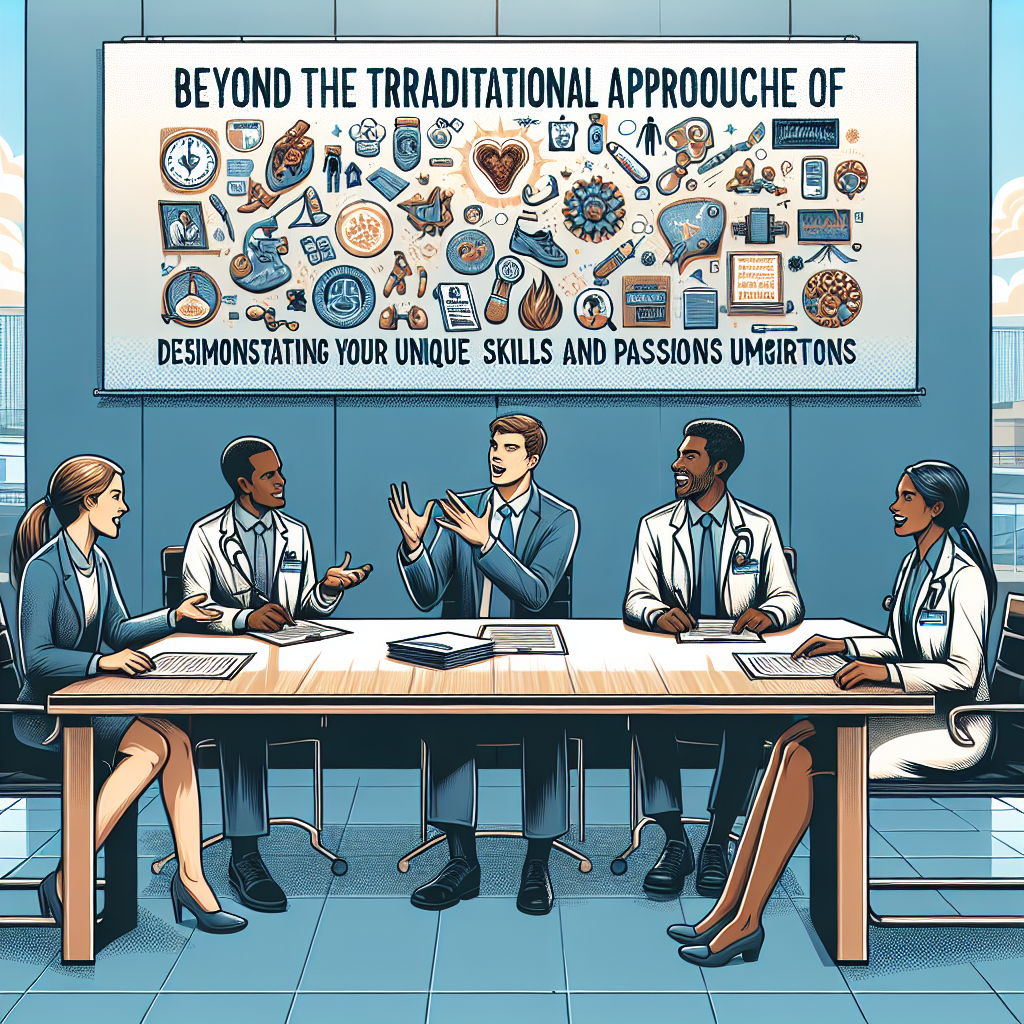As you prepare for residency interviews, it’s easy to focus solely on your clinical experiences, grades, and qualifications. However, standing out in the crowd requires more than just an impressive CV. Residency program directors are looking for candidates who not only possess the necessary medical knowledge but also bring unique skills and passions to the table. In this article, we’ll explore strategies to humanize your application and showcase your distinctive attributes during residency interviews.
The Importance of Showcasing Your Unique Skills
Your CV may outline your academic accomplishments and clinical rotations, but it doesn’t capture the entirety of who you are as a physician and a person. Unique skills—be it in communication, teamwork, or even extracurricular talents—can set you apart from other candidates. Here’s how to leverage these aspects in your interviews:
1. Identify Your Transferable Skills
Consider the skills you’ve developed outside of medicine. Communication skills honed from public speaking, leadership experience from student organizations, or analytical skills from research can all be highlighted. These transferable skills not only demonstrate your versatility but also your ability to thrive in diverse environments.
Tip: Create a personal inventory of your skills and experiences to prepare anecdotes that demonstrate these abilities in action.
2. Connect Your Passions to Your Medical Journey
Whether it’s a lifelong interest in global health, community service, or a passion for technology, finding ways to connect your passions to your medical journey can create a compelling narrative during your interview.
Example: If you have an interest in global health, elaborate on how this has influenced your view of healthcare disparities and shaped your approach to patient care.
Crafting Your Personal Narrative
In residency interviews, storytelling can be a powerful tool. A well-crafted personal narrative not only showcases your unique skills but also connects your past experiences to your future as a physician.
1. Use the STAR Method: Situation, Task, Action, Result
Organize your stories using the STAR method to create a structured response. This method will help you clearly articulate your experiences, focusing on the impact of your actions.
Example: If you were part of a team that improved patient care in a community clinic, describe the situation (the challenges faced), your role (the task), the steps you took (actions), and the outcome (results).
2. Reflect Your Authentic Self
Authenticity resonates well with interviewers. Be honest about your experiences—both successes and setbacks. Discussing challenges can make you relatable and demonstrate resilience, which is an invaluable trait in residency.
Demonstrating Collaboration and Team Dynamics
Teamwork is a cornerstone of medical practice, and residency programs are keen to find candidates who thrive in collaborative environments.
1. Highlight Collaborative Experiences
When discussing your past experiences, emphasize scenarios where you worked effectively with a team. Whether it was during medical school projects, volunteer work, or research collaborations, showcasing your ability to navigate group dynamics can convey your readiness for residency.
Tip: Share specific examples that illustrate your role within a team and how you contributed to achieving a common goal.
2. Talk About Mentorship and Community Involvement
Discussing mentorship—whether as a mentor or mentee—shows your commitment to personal growth and the development of others. Involve examples where you guided peers or sought guidance, emphasizing how these relationships shaped your journey in medicine.
The Role of Cultural Competence
In an increasingly diverse world, cultural competence is essential in providing quality healthcare. Residency programs seek individuals who appreciate and understand different backgrounds.
1. Share Multicultural Experiences
If you’ve worked or volunteered in culturally diverse settings, share these experiences. Explain how they shaped your understanding of patient care and influenced your approach to treating individuals from different backgrounds.
Example: Describe how working in a clinic that served a diverse community enhanced your ability to communicate effectively and show empathy toward patients’ unique needs.
Preparation Tips for Interview Success
While showcasing your unique skills and passions is crucial, proper interview preparation cannot be overlooked. Here are some tips to help you succeed:
1. Research Programs Thoroughly
Each residency program has its unique culture and values. Tailor your responses to align with what the program specifically values, whether it’s research, teaching, or an emphasis on patient-centered care.
2. Practice Mock Interviews
Conduct mock interviews with mentors, peers, or career advisors to gain feedback. Familiarity with common questions can help reduce anxiety and enable you to focus on presenting your distinctive qualities effectively.
3. Prepare Thoughtful Questions
At the end of your interviews, asking insightful questions can further illustrate your interest and enthusiasm for the program, while also providing a platform for you to connect your unique skills and passions back to the program’s mission.
Conclusion: Be the Candidate Who Stands Out
Residency interviews are not just about showcasing qualifications; they are an opportunity to highlight your unique skills, passions, and experiences that set you apart from the competition. By crafting a compelling personal narrative, demonstrating teamwork, embracing cultural competence, and preparing thoughtfully, you can effectively communicate your individuality.
Remember, the goal is to be memorable—not just for your credentials but for your humanity. In doing so, you’ll leave a lasting impression in the minds of your interviewers, paving the way for a successful residency journey.


